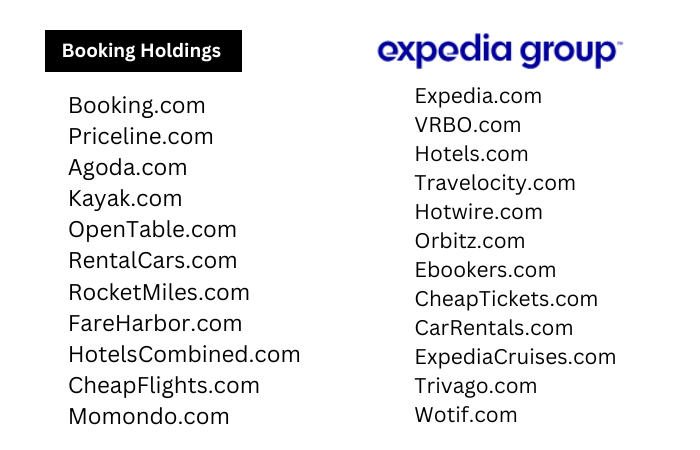Four 4 facets of todays travel industry that control what you spend on travel.
Hotel Rate Parity Agreement: Overview, Origins, and Purpose
What is a Hotel Rate Parity Agreement?
Hotel Rate Parity Agreement is a contractual arrangement between hotels and online travel agencies (OTAs) that ensures hotels maintain consistent pricing across all distribution channels. This means a hotel must offer the same room rates and conditions on its website as on public OTAs like Booking.com, Expedia, or Hotels.com.
When Did It Begin?
The concept of rate parity emerged in the late 1990s to early 2000s, as online booking platforms gained prominence. Hotels began partnering with OTAs to distribute their rooms more widely, and OTAs sought assurances that they would always have competitive rates. The agreement was widely adopted across the industry, ensuring that hotels couldn’t undercut OTAs or vice-versa by offering lower rates directly on their websites.
Purpose of the Hotel Rate Parity Agreement
- Fair Competition – OTAs invest heavily in marketing and expect a level playing field, ensuring that hotels don’t bypass them with lower direct booking rates.
- Consumer Confidence – Guests can book through any channel without worrying about missing out on a better price elsewhere.
- Revenue Protection for OTAs – Since OTAs take commissions from bookings, rate parity ensures they maintain profitability.
- Market Stability – Prevents price wars that could devalue hotel rooms and make pricing unpredictable.
This is why searching for a hotel room on a hotel chain’s website and public OTA (Online Travel Agency) sites typically yields similar prices. Hotels generally pay OTAs a commission of 18%–20% for each booking, making it a highly profitable model for both parties. However, while this system benefits hotels and OTAs, it doesn’t offer much value to consumers. Fortunately, there are ways to secure a better deal.
What is a Narrow Rate Parity Clause?
The Narrow Rate Parity Clause is a refined version of the traditional rate parity agreement, allowing hotels to offer lower rates through private OTAs, offline channels, or exclusive programs like loyalty memberships. This means hotels can provide discounted prices to closed-user groups, such as email subscribers, corporate clients, or paid membership programs like WalletWiseTravel.com.
Conglomerate Consolidation of Online Travel Agencies and Travel Aggregators.
Consolidation is the trend in the corporate world, and this is true in the travel booking industry. Today, the majority of the online travel agencies and aggregators you are familiar with are owned by 2 companies: Booking Holdings and The Expedia Group.

With consolidation, Bookings Holdings and the Expedia Group have multiple avenues to capture a majority of the travel bookings consumers make. For hotels, with Rate Parity in effect, it’s always at full retail and full commissions. As a consumer, it can make you feel almost trapped. But you are not as a member of WalletWiseTravel.com
Inventory Block Allocation in the Travel Industry
Inventory Block Allocation refers to the practice where airlines, hotels, or travel providers allocate a specific number of seats, rooms, or services to a travel agency, tour operator, or other third-party distributors in advance. This ensures availability and allows travel sellers to offer these services as part of packaged deals or pre-arranged travel plans.
How It Works
- Pre-Allocation of Inventory
- Airlines, hotels, or cruise lines set aside a block of seats, rooms, or cabins for a travel agency or tour operator for a specified period.
- These allocations can be reserved under different terms, such as guaranteed (fixed payment) or non-guaranteed (release-back policies).
- Contract Terms
- A contractual agreement defines the number of units allocated, pricing terms, release deadlines, and payment conditions.
This facet of the travel industry is why you may see this message “only 2 left or 1 left” beside a booking for a room, flight, or rental car. The OTA is at the end of its available inventory for the current contract. It will change when the contract is renewed. When OTA’s are out of that inventory it will no longer show in your search results which makes it hard to compare when travel shopping.
Airline, Rental Car, and Cruise Lines Pricing
- All these travel segments maintain 100% control over what the end user pays to use their offerings. Current retail prices and all advertised prices on their company websites are passed down instantly to online travel agencies. If an OTA posts a “Sale Price”, that sale is offered by the travel company, not the OTA.
- Websites such as Scotts Cheap Flights (now Away.com), Dollar Flight Club, and Secret Flying all scrub the internet for specials and mistake fares on the airline industry’s websites and share their findings with you if you are a member, they do not book them for you. Once you know the details, dates, etc. of these specials or mistake fares you can book them on any OTA or the airline’s website. They find you great deals if your travel is not date or time specific as these are only available on specific days or periods of time.
- If you see coupons offered, on any OTA, these are provided by the OTA and come out of their pocket.
